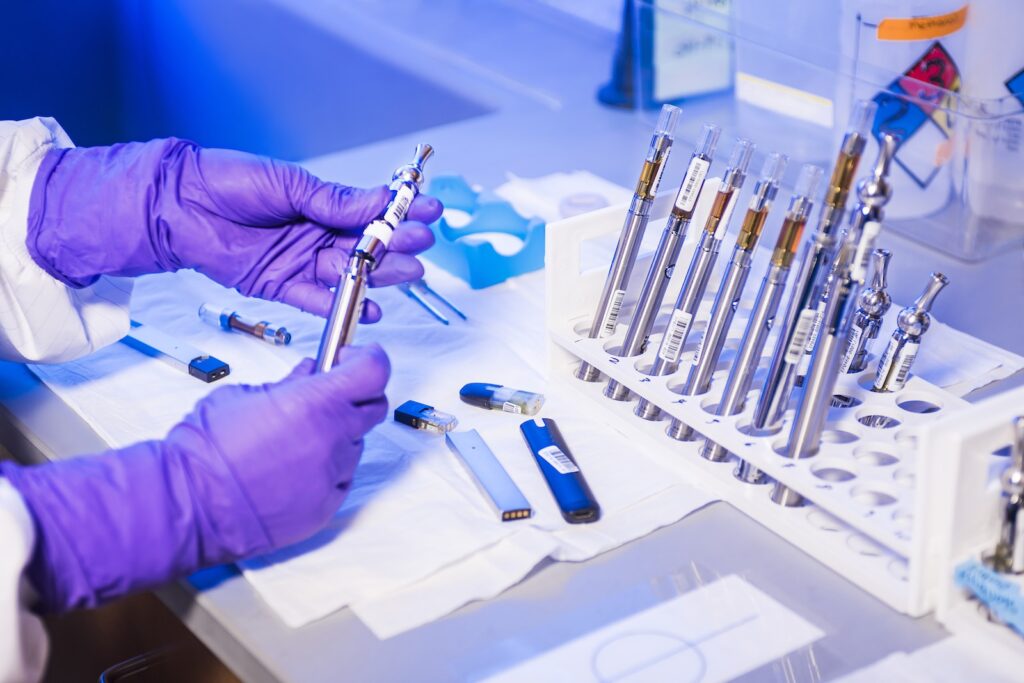Table of Contents
Understanding Gene Therapy: A Breakthrough in Medicine
Gene therapy is a revolutionary field of medicine that promises to transform the way we treat genetic disorders. The fundamental principle behind it is quite simple – by correcting the underlying genetics behind a disease, researchers hope to address the root cause of many illnesses.
The process involves introducing genes into an individual’s cells and tissues. These genes can either correct or replace mutations in DNA, or introduce new functions altogether. In this way, gene therapy has enormous potential for treating diseases caused by faulty genes such as cystic fibrosis, sickle cell anemia, and muscular dystrophy.
There are two main types of gene therapy: germ line and somatic. Germ line gene therapy involves modifying the genetic material contained within reproductive cells (sperm or eggs), so that any changes made are passed down through generations. However, this type of treatment remains highly controversial due to ethical considerations and possible unintended consequences.
Somatic gene therapy on the other hand targets non-reproductive cells such as blood stem cells or muscle tissue, which do not affect future offspring but offer therapeutic benefits only for individuals undergoing treatment.
Despite its huge potential for curing genetic diseases once considered untreatable with conventional methods like pills and surgery alone; there remain barriers preventing widespread adoption today including insufficient funding from governments & corporations alike , safety risks associated with long-term use because some therapies require lifelong modification / monitoring which is both invasive/expensive . But recent breakthroughs have led many experts to believe that it’s only a matter of time before genetherapy becomes commonplace across all aspects medicine.
“The possibilities afforded by Gene Therapy promise nothing short than revolutionary change in our understanding howto treat various previously incurable conditions.”
How Gene Therapy Works to Treat Genetic Disorders
Gene therapy is a promising technique that aims to help people with genetic disorders by replacing, removing or repairing genes in order to treat the underlying cause of the disease. The idea behind gene therapy is relatively simple – it involves manipulating a person’s DNA by introducing new healthy genes into their cells to replace the faulty ones.
The process typically begins with identifying the specific gene mutation responsible for causing a particular genetic disorder. Gene therapies are often developed and tested on small sample sizes before being scaled up for larger clinical trials. Once researchers have identified an effective target for treatment, they can use various techniques such as viral vectors or CRISPR-Cas9 technology to deliver these new healthy genes into cells in affected areas of the body.
One example of how gene therapy works is seen in treating cystic fibrosis (CF), which is caused by mutations in certain genes that affect mucus production and secretion. In this case, researchers would work on designing a delivery system specifically targeted towards respiratory tract cells where CF occurs most prominently. This can be done through inhalers or nebulizers that help transport vector particles carrying healthy copies of CFTR (the mutated gene) directly into airway epithelial cells.
In addition to correcting genetic defects, there are other potential applications for gene therapy like cancer treatments where it may be possible to create genetically modified immune cells capable of fighting against tumors more effectively than traditional chemotherapy methods.
Conclusion
In conclusion, Gene Therapy holds great promise when it comes to treating some types of genetic diseases at their source rather than just managing symptoms as we currently do today with medications and surgeries alone.
While still in its early stages and not yet widely adopted due primarily because it presents ethical challenges surrounding safety concerns as well regulatory red tape requirements but research has shown success rates from animal trials in lab settings which gives us hope that we will soon have therapies for even more genetic disorders.
Promising Developments and Advancements in Gene Therapy Research
Gene therapy is an exciting field of medicine that holds tremendous promise for treating and potentially curing a wide range of genetic diseases. While gene therapy research has been ongoing for several decades, recent advancements have greatly expanded our understanding and capability to use this technology.
One major development in gene therapy research is the use of CRISPR-Cas9 as a tool to edit genes with incredible precision. This groundbreaking technology allows scientists to target specific genes responsible for causing disease, cut out or add new DNA sequences into the genome, and ultimately correct mutations that lead to inherited disorders such as cystic fibrosis or sickle cell anemia.
In addition, advances in viral vectors have enabled more efficient delivery of therapeutic genes into targeted cells within the body. For example, the use of adeno-associated viruses (AAVs) has shown great potential for delivering corrective genes directly to muscle tissue in patients with muscular dystrophy.
Furthermore, researchers are exploring how gene therapies can be used beyond simply correcting defective genes but also enhancing healthy functioning ones. For instance, some promising studies suggest using gene editing tools like CRISPR-Cas9 to boost immune system responses against cancer cells in patients with certain types of cancer.
Despite these significant strides forward, there are still many challenges that must be addressed before widespread clinical applications will be feasible. One key obstacle is the potential risk for off-target effects when altering DNA sequences which could result in unintended negative consequences. Additionally, ensuring long-term safety and efficacy remains a critical priority especially given that many genetic disorders require lifelong treatment.
The Bottom Line:
Gene therapy research represents one of modern medicine’s most exciting frontiers – unlocking cures previously thought impossible while holding tremendous promise for the future. While clinical applications are still in their early phases, recent advances have demonstrated that gene therapies could hold the key to addressing some of the most persistent and debilitating illnesses facing our world today.
Challenges and Limitations of Gene Therapy Treatment
The field of gene therapy has made significant strides in the past few decades, but there are still several challenges and limitations to overcome before it can be widely adopted as a mainstream treatment. One of the biggest challenges is the delivery system for gene therapies. Currently, most gene therapies rely on viruses to deliver therapeutic genes into cells. While this method has shown promise in early clinical trials, it is not without its own set of risks.
Another challenge facing gene therapy is the potential for unintended consequences or side effects. As with any new medical treatment, researchers must carefully weigh the benefits against any potential risks to patients. In some cases, introducing new genetic material into a patient’s DNA could lead to unexpected reactions that may do more harm than good.
Furthermore, gene therapies are often complex and expensive procedures that require highly skilled medical professionals to administer them safely and effectively. This means that access to these treatments may be limited by factors such as geography or socioeconomic status.
In addition to these technical challenges, there are also ethical considerations surrounding the use of gene editing technology. Some have raised concerns about whether genetically modifying human embryos could lead down a slippery slope towards eugenic practices or other forms of discrimination based on genetics.
“The question we face now is how much control should we exert over our biology?”
says Dr Carl June who helped pioneer CAR T-cell therapy -a type cancer immunotherapy- in an interview with The Guardian. Overall, while there is no doubt about the tremendous promise offered by gene therapies for treating various diseases ranging from rare genetic disorders such as sickle cell anaemia or cystic fibrosis among many others; like any emerging technology its path forward will undoubtedly feature many challenges and obstacles along the way.
Ethical Considerations Surrounding the use of Gene Editing Technology
Gene editing technology has opened a world of possibilities in the field of medicine. However, along with its promise comes ethical concerns that must be addressed to ensure the safety and well-being of individuals and society as a whole.
One major concern is the potential for gene editing to be used for non-medical purposes such as enhancement or cosmetic changes. This raises questions about how we define what constitutes an acceptable use of genetic modification.
Another question surrounds access to gene therapy treatment. As with any new medical advancement, there are worries that only those who can afford it will have access to this type of treatment, perpetuating existing health inequalities.
The most concerning issue surrounding gene editing technology is its permanent nature and potential impact on future generations. Changes made through gene therapy will affect not only the individual but their offspring as well, leading some experts to worry about unintended consequences down the line.
Beyond these immediate issues are more philosophical considerations surrounding our relationship with nature and science itself. Some believe that altering genes goes against natural processes and could ultimately lead us down a slippery slope towards playing God.
In conclusion,
while gene editing technology holds immense promise for revolutionizing medicine, we cannot ignore its implications beyond simply advancing scientific progress.
The Future of Precision Medicine Through Gene-Based Therapies
Gene therapy is a rapidly evolving field of medicine that holds great promise for the future of precision medicine. Precision medicine refers to diagnoses and treatments tailored to an individual patient’s specific genomic profile. This approach recognizes that each person’s genetic makeup is unique, and therefore their medical treatment should be personalized.
The use of gene-based therapies has already shown significant success in treating previously untreatable diseases such as inherited retinal dystrophies, spinal muscular atrophy, and certain types of leukemia. Instead of simply addressing symptoms or managing disease progression, gene therapy aims to correct underlying genetic mutations causing the disease itself.
As technology improves and research advances, gene therapy will continue to expand its potential applications across various fields such as oncology, cardiology, neurology, gastroenterology and other specialized areas. In cancer treatment specifically it’s believed that down the line we will see more targeted drug therapies based on specific genomic markers within tumors – making sure patients are receiving customized treatment rather than taking a one-size-fits-all approach.
The Promise:
To develop alternative treatments for chronic diseases:
Gene therapy promises alternatives to current approaches where drugs often have side effects that can worsen a health condition over time.
To cure otherwise incurable illnesses:
While many conditions may be managed through lifestyle changes along with medication management allowing sufferers live longer lives there still remains many incurable illness; gene editing gives hope here.
To reduce healthcare costs by minimizing hospital visits:
Gene-based medicines once developed don’t require constant supervision at hospitals which means less frequent trips into the hospital system for check-ups etc., making things much easier for patients who face mobility issues. Of course with any new development comes challenges – including ethical considerations around accurate testing methods used to determine who is eligible for gene therapies, and potential side-effects not yet fully understood. But there can be no denying the massive potential that gene therapy holds in improving the quality of life for countless patients around the world.




